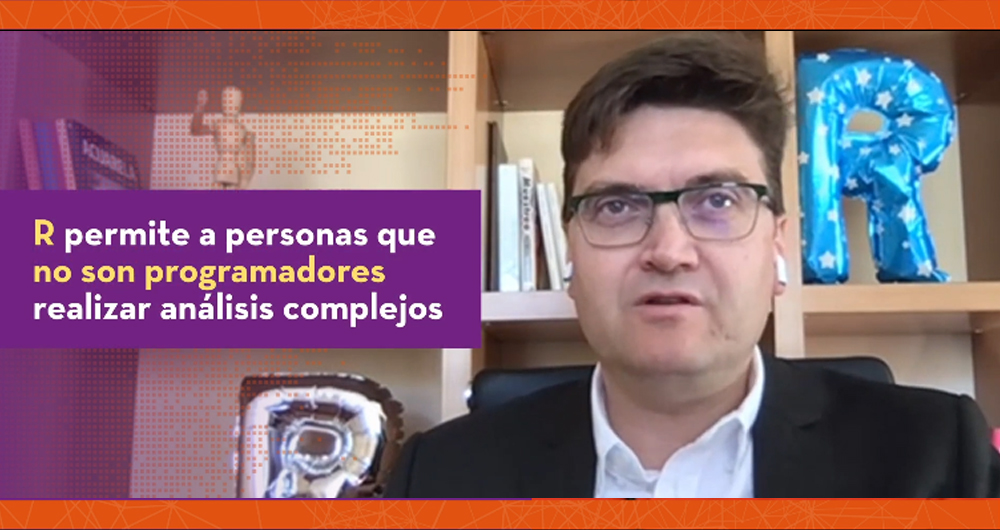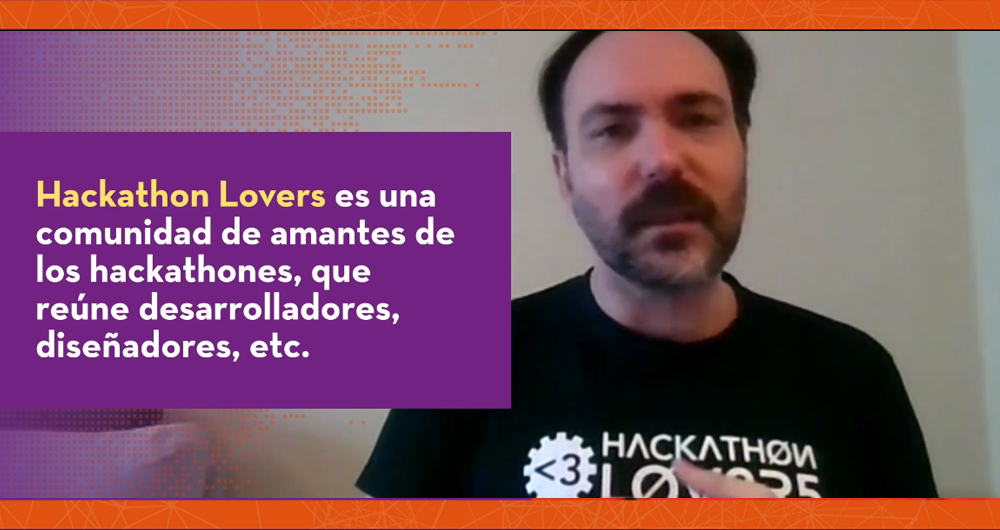Interview with Inés Huertas, Leticia Martín-Fuertes and Elen Irazabal, R- Ladies
Fecha: 14-07-2021
Nombre: nés Huertas, Leticia Martín-Fuertes and Elen Irazabal
Sector: Science and technology
Organismo, Institución o Empresa: R-Ladies

R-Ladies is a software community that aims to give visibility to women who work or develop projects or software using R to do so. It is a local branch of R-Ladies Global, an open source community born in 2016.
Its organisers, Inés Huertas, Leticia Martín-Fuertes and Elen Irazabal, gave us a few minutes to talk about the activities carried out by this community and how to promote the presence of women in technological fields.
Full interview:
1. How does R-Ladies start?
R-Ladies Madrid was born from an international initiative, but it was also born from a local reality in Spain at that time, which was that few girls could be found at congresses or developing R packages, so nobody thought it was a problem until the first meetups, when many women who were attending a community for the first time started to appear and we didn't see them in those other spaces for different reasons. That motivated us to continue with the community, since in many occasions we were the gateway for them to be able to participate in these communities or conferences, etc.
2. What advantages and disadvantages does R have as a programming language compared to its competitors?
R is one of the first free software languages used in the world of data. It has been closely related to the university and research community, which initially fed a large part of the package that we have today. Today there are large companies that work to improve and maintain these repositories, because the spectrum of software that can be found in R is very broad and has a powerful community behind it. You can find developments ranging from niche research packages such as biogenetics, to less specific packages for general analysis.
3. The number of women in engineering is 25% (while the total number of women in the university system is 59%). In your opinion, what are the reasons behind this situation?
There are several reasons for this, but if we have to choose one, it is the lack of visibility of women in engineering. Great efforts are currently being made to give visibility to women who develop and work with data. At R-Ladies, for example, we have an international directory where you can find women to speak at conferences around the world, thus being able to create reference models for other women who are encouraged to participate. That's what we do at R-Ladies, we give visibility to women who are working with R.
In any case, and given the digital revolution we are living through, what we are seeing is the union between letters and sciences. For example, in the field of Artificial Intelligence, we are seeing how it is affecting areas that were previously literary, such as linguistics, law, marketing and so on. Given this intersection, mixed profiles are appearing that, without having studied an engineering degree, are dedicated to applying technical aspects to the non-technical world. For example, teaching natural language to machines.
The case of law is also paradigmatic; there are already regulations that require technical knowledge to apply them. In fact, even the technical world can also be interested in the world of letters, for example, how law and regulation affect how the internet works.
In short, the world of science and the world of literature should not be seen as separate careers, but as increasingly complementary.
We are seeing the union between the arts and the sciences. Mixed profiles are appearing that, without having studied an engineering degree, are dedicated to applying technical aspects to the non-technical world.
4. How do initiatives such as R-Ladies help to boost the presence of women in technology?
Precisely by helping to create Role Models. Supporting women so that they do not suffer from the so-called "imposter syndrome". Giving a talk in your free time about the things you work on or are interested in is much more than it seems, for many of these women it is a first step that can help them to present a project in their company or defend a proposal to a client.
5. What projects are you working on?
Currently with the pandemic we have had to adapt with a cycle of monthly online workshops/talks during 2020/2021 that does not limit us to be physically in Madrid, so we have speakers that otherwise would be more complicated to bring to Madrid. In addition, we have tried to do these monthly workshops in an incremental way, so that starting in September until now we have been increasing the level of the sessions starting from the first steps in R to finish with the realization of a data analysis with Neural Networks. We are also feeding with these sessions our YouTube channel, generating content in Spanish on how to use R that is having a great reception.
6. What types of open data have you used in your projects and what data would you like to work with?
On the use of open data, some of the working groups use data from the BOE or Open Data NASA for project development. We also helped to set up a working group that works with covid data.
We would like to be able to work with Spanish jurisprudence. It would be very interesting to see how in the history of democracy different sentences have been handed down and how they have evolved over the years.
We would also like to be able to work with the RAE's reference corpora, such as CREA, CORDE or CORPES XXI, which contain texts of various kinds, including oral transcriptions, with which we could carry out a great deal of linguistic analysis and serve as training data to improve the presence of Spanish in the field of AI.
On the use of open data, some of the working groups use data from the BOE or Open Data NASA for project development. We also helped set up a working group that works with covid data.
7. Finally, how can interested people follow R-Ladies and collaborate with you?
Super easy! You can write to us at madrid@rladies.org, sign up for our Meetup or simply tweet us at @RladiesMad. Everyone is welcome!














